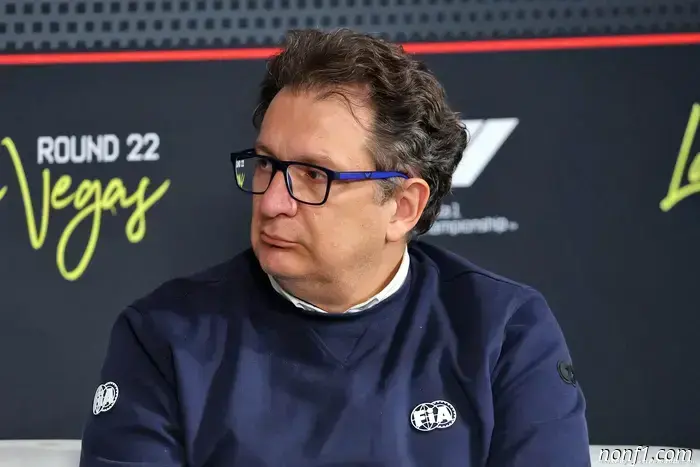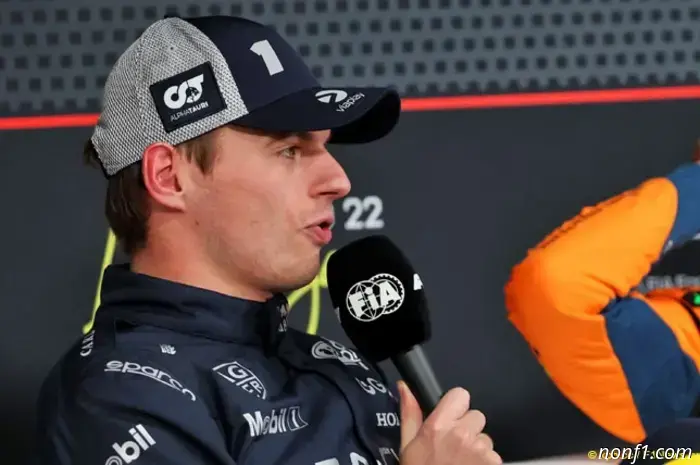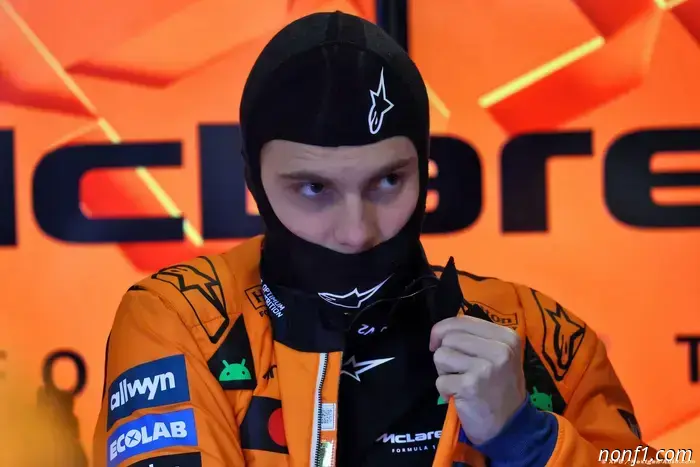
FIA reports that the engine grey area 'vanishes' with the 2026 regulations.
The FIA has stated that the confusion surrounding McLaren's concerns regarding Max Verstappen’s new engine in Brazil will be eliminated once the new power unit cost cap takes effect in 2026. Following Red Bull's decision to install a brand-new power unit in Verstappen’s car at Interlagos, perceived largely as a performance-related choice, McLaren quietly questioned whether this action should be classified as falling within or outside the financial regulations.
Currently, there is no cap on the cost of power units, allowing a works team to absorb the expense of an additional engine, while a customer team must cover the cost of each unit. This inconsistency raised McLaren’s apprehension. During an event in Las Vegas, the FIA’s Single-Seater Director, Nikolas Tombazis, acknowledged that the existing framework is flawed.
"We view this as a weakness in the current regulations," Tombazis remarked. "We prefer not to engage in disputes with teams regarding whether an engine change is due to reliability or strategy. In that ambiguous territory, we simply lack the expertise to make judgments."
As a result, the FIA has allowed such engine changes without monitoring their financial consequences, which is why Red Bull's action at Interlagos was largely accepted without challenge. However, Tombazis indicated that this loophole will close next year.
"With the introduction of the PU cost cap in 2026, this issue will be addressed. Manufacturers will find it disadvantageous to make strategic changes, as each change will approximately cost the price of an engine. This creates a natural deterrent."
"This will cease to be a matter of discussion." In Las Vegas, Red Bull's chief engineer, Paul Monaghan, dismissed claims that the switch at Interlagos was inappropriate. "What we did is acceptable," he asserted. "Others have done the same under the current engine regulations." He added that he does not believe there will be any penalties for them: "I’m not a financial expert, but that’s my understanding."
McLaren’s technical director, Neil Houldey, emphasized their frustration stems from the structural inequity. "We don’t have a partner willing to provide us engines at no cost," he stated. "Factory teams can take advantage of that. We are in a different situation. Factory teams have historically had benefits on the engine front, and I don’t foresee that changing. However, financially, next year will be more manageable."

Other articles
 Verstappen: Everyone behaved sensibly or was just afraid
Max Verstappen qualified second in Las Vegas. At the press conference, the Red Bull Racing driver shared his impressions of the session and talked about what he expects for Sunday's race.
Verstappen: Everyone behaved sensibly or was just afraid
Max Verstappen qualified second in Las Vegas. At the press conference, the Red Bull Racing driver shared his impressions of the session and talked about what he expects for Sunday's race.
 Piastri's social media misstep sparks rumors of tension at McLaren.
Formula 1 | Oscar Piastri has put both himself and McLaren in a difficult position after briefly echoing Bernie Ecclestone's recent assertion that the team is (…)
Piastri's social media misstep sparks rumors of tension at McLaren.
Formula 1 | Oscar Piastri has put both himself and McLaren in a difficult position after briefly echoing Bernie Ecclestone's recent assertion that the team is (…)
 50 minutes until the start: Fernando Alonso's commentary
50 minutes until the start: Fernando Alonso's commentary
50 minutes until the start: Fernando Alonso's commentary
50 minutes until the start: Fernando Alonso's commentary
 Bearman criticizes the Vegas track as Verstappen avoids the spotlight.
Formula 1 | Oliver Bearman has deviated from the typical diplomatic stance of Formula 1 drivers by candidly expressing his dissatisfaction with the Las Vegas street circuit - labeling it the (…)
Bearman criticizes the Vegas track as Verstappen avoids the spotlight.
Formula 1 | Oliver Bearman has deviated from the typical diplomatic stance of Formula 1 drivers by candidly expressing his dissatisfaction with the Las Vegas street circuit - labeling it the (…)
 Manager states that the Schumacher family will adopt a 'more cautious' approach.
Formula 1 | Following the shocking blackmail incident involving stolen private materials, Michael Schumacher's family will now further restrict their inner circle.
Manager states that the Schumacher family will adopt a 'more cautious' approach.
Formula 1 | Following the shocking blackmail incident involving stolen private materials, Michael Schumacher's family will now further restrict their inner circle.
 60 minutes until the start: George Russell's commentary.
George Russell will start fourth in Las Vegas and would like to fight for the win…
60 minutes until the start: George Russell's commentary.
George Russell will start fourth in Las Vegas and would like to fight for the win…
FIA reports that the engine grey area 'vanishes' with the 2026 regulations.
Formula 1 | The FIA states that the uncertainty caused by McLaren regarding Max Verstappen's new engine in Brazil will be resolved with the implementation of the new power-unit cost in 2026.
